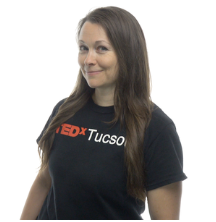|
By Laurel Elders, PCC with contributions by Sandy Hogan, PCC
Your heart sinks. You just realized you forgot to follow through on an important task. Important to you and important to your colleague that is relying on you. Immediately feelings of embarrassment, dismay, and aggravation kick in. Not only that, you feel disheartened to have let someone else down. Ugh... sigh... Mistakes happen. They are a normal part of being human. No matter how much planning, preventing, structuring we do... they still happen. Some mistakes may have bigger consequences to ourselves or an impact on other people. In our coach training, we teach a truly powerful model called Compassionate Communication. Also known as Nonviolent Communication. One wonderful aspect of this approach is that it applies to such a vast array of human dilemmas and has the ability to restore connection, peace, and flow. Compassionate Communication has been found highly effective in everything from warring communities in the Middle East, to effective parenting, to coaching, to self-esteem. It is no surprise then that applying this model to mistake-making helps us acknowledge and claim the results of our words (or lack of words) and/or actions (or inactions). There are four ingredients:
For example, with a mistake, we can own it and say:
We typically do not look through the lens of these four ingredients. Humans often get stuck in the weeds of judgment and emotions. To be of best service, we can get to the heart of the issue by removing the judgment. Progress is made when we relinquish avoidance and get real. Connection occurs when we relinquish minimizing and face the true. Healing a hurting relationship transpires when we relinquish attack and instead invite a solution. Compassionate communication is powerful journey to take with ourselves and definitely with others when we make mistakes. We truly can bring care into anything and everything we do. To learn more, you may wish to check out the work by Dr. Marshall B. Rosenberg called Nonviolent Communication; A Language for Life >> CLICK HERE << Last October I was invited to join the panel of speaker evaluators for TedX Tucson and be one of the speaker coaches. Ideas are something I'm passionate about, so I jumped on board!
This week I have an interview to share. I interviewed Tamica Sears of the Corporate Fixer about how coaching skills impacted her career path as an HR Professional. Tamica came to us with a passion for coaching and excellence. Tamica is an IICT graduate and an executive coach. Enjoy! In Service to your Life Purpose, Laurel Elders, PCC Senior Faculty and Founder of IICT In this modern era we are faced with an unspoken challenge. Ken Wilber, the philosopher behind integral theory, noticed that we have many people that grow up, yet fewer people wake up. We have many people that have gotten older, yet few people that we go to as an elder. An elder in some cultures is the wise guide that people in a community can turn to for support and mentoring. Yet, there is an elder among us all that is ready to serve. This elder is not whom you would think, or even approach, or seek out. This elder is accessible and ready to serve whenever called upon. This wise elder is found at the apex of coaching. Coaching is the newest elder on the scene. Coaching is introducing people to their own empowerment, their own wisdom and their own potentials. Not by advising or guiding the way for them. But, by introducing them to Themselves. The self waiting to come forward. The wisest part of self, the most aligned part of self, the authentic part of self. No other other modality, that I'm aware of, can breach limitations at this level. "You have taught [yourself] what you are, but you have not let what you are teach you." ~ A Course In Miracles This week I invite you to allow yourself to teach yourself. Put the next self-help book down (you can always read it later through a new lens) and instead go inside. What does your heart have to say about.... ? Every coach has the tools to hold a bigger space for us to meet the elder within. Every coach has the skills to help you see farther, dig deeper and help you ensure you are unfolding in the right direction. Can you imagine living a world where people are connected to their wisest self sooner than later? Companies that begin with the end in mind? Leaders that care about the health of the whole because they are connected to their values? I can and I am proud to be a part of this profound solution we call coaching. In coaching, we come home to Our-self, our best self, our brightest self, our most inspiring self. And, we find that home truly is where the heart is. And this is why coaching is the next elder, waiting to support us in ways we never could have imagined on our own, in this next chapter of human evolution. If today's message has inspired you,
please share it with other coaches who cherish inspired learning as much as we do! In Service, Laurel On the coaching path we encounter paradoxes every now and then. We see this in our clients when they feel stuck in the seeming paradox of black and white thinking. A dilemma of "this or that".
Through coaching, the veil of limit is removed to uncover the gray areas life offers. Then eventually, if the client is willing, they see the full spectrum of colorful choices they have to choose from. Black and white thinking is just one paradox we coaches bump up against. Before we dive in further, let’s look at what a paradox actually is. Paradox by Google definition: par·a·dox /ˈperəˌdäks/ Noun- A situation, person, or thing that combines contradictory features or qualities. First, I want to share that I do not believe in paradox as a “thing” that exists in reality. I find it odd that it is classified as a noun. Here is why... What we deem a paradox is the way we conceptualize a limit placed on our ability to perceive the whole. When those limits are removed, we see all aspects and illumination sets in. We see this in masterful coaching all the time. In other words, when we sentient human beings that are limited to only the six senses and by what our scientific tools cannot measure, view two perspectives that seem to oppose, we label it a paradox. In this context, paradox is a problem of perceptual juxtaposition only. The idea being, the bigger the picture we can see, the more interconnectivity becomes clarified. In essence, the more we view life integratively the more paradox and limits are dispelled. How can we move our clients out of paradox? We help then see the whole picture of possibilities. In all of my years as a coach, there is one paradox that stands out the most. This paradox is the cause of confusion, heart-ache and in more extreme circumstances, abuse of personal power. This paradox is: Every asset carries a liability. This seems illogical. How can an asset also have a liability attached? Yet, as one of my mentors many decades ago said, “Different times. Different things.” Take compassion for instance. If a person has an overload of compassion, many of us would be impressed and may think, “Wow, what a wonderful personal characteristic to embody.” Compassion is indeed an asset. When I was 15 I was in a horrific car accident, flung from the cabin of a truck going 80 mph. The doctor placed his hand on my shoulder in the ER, looked into my eyes and said with deep compassion, “It is ok. You are going to be ok.” His compassion saved me from complete overwhelm and panic. His compassion was a huge asset to me. How can there be a downside to compassion?! Paradoxically speaking, there is. Consider the person that remains in an abusive relationship months or years too many, because the abuser claims that if they "leave the relationship, then they would be leaving them in pain". That is the time when the wonderful characteristic of compassion turned from an asset into a liability. Different times, different things. Can a liability be an asset? Seems illogical. Yet, the answer is yes. Let’s look at anger. Many would say anger is a liability and hurts many people. This is accurate. Anger has hurt many people, destroyed relationships, careers and lives. However, if that same anger is used to take one’s power back and draw a line in the sand in the face of injustice then that liability has become an asset. In the case above where too much compassion was enabling abuse to continue, drawing the line in the sand is the asset and it may take the power of anger to light that fire. The paradox buster here is location. When does the asset or the liability show up? There is an ancient Toltec teaching of “Victim, Warrior, Master”. If someone is stuck in victim then anything done through victim can’t help but have a liability attached. Warrior is needed to step out of victim. It takes the person being abused to stop the cycle, rarely the abuser. In warrior, they take a stand for themselves and leaving abuse in the dust. Yet, if someone is stuck in warrior too long this can turn into a liability, or a pushing against life. Different times, different things. Here is where location becomes really profound! Anything done in master is an asset. The master lives through the wisdom of balance. When is compassion too much? When is compassion too little? When is anger too much? When is anger too little? The master responds to life and adjusts accordingly from a higher perspective. This is the brilliance we offer our clients as integrative coaches. As a coach, we reflect back when we observe our client living “in balance”, or “out of balance”. We inquire if a motivation is coming from victim, or warrior, or master. We hold space for master to step in and begin answering life’s biggest quandaries. This level of awareness rests at the heart of true integration. The journey from warrior to master is where alchemy transpires. The quest for excellence is the birthplace of human brilliance. What is possible when clients are moved out of paradox and into possibility? How can you use the paradox of asset/liability to become more masterful in your coaching? When can you help your clients see if they are stuck in victim or warrior for too long? |
Archives
June 2022
Categories
All
|




 RSS Feed
RSS Feed